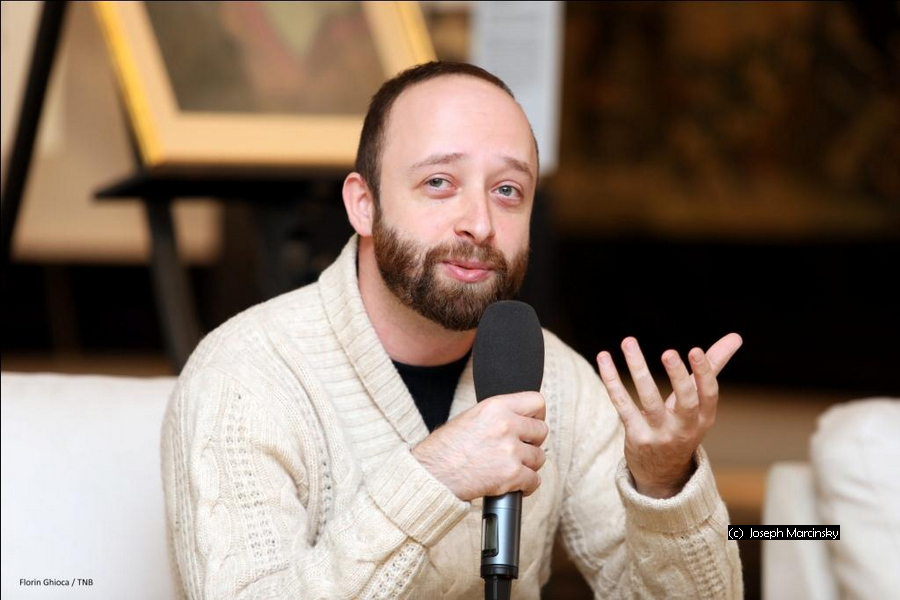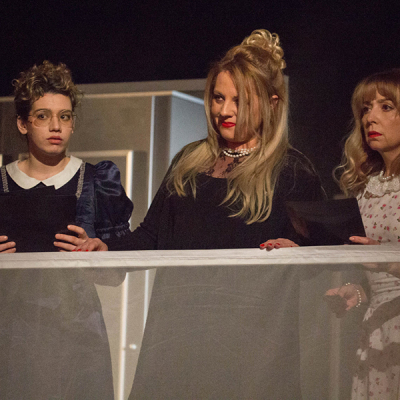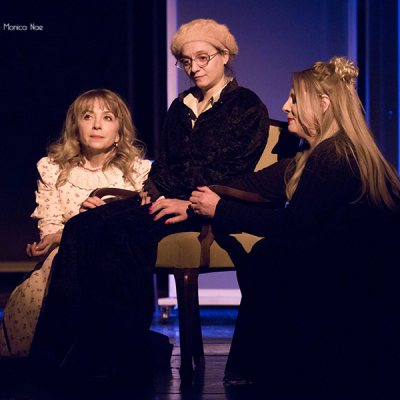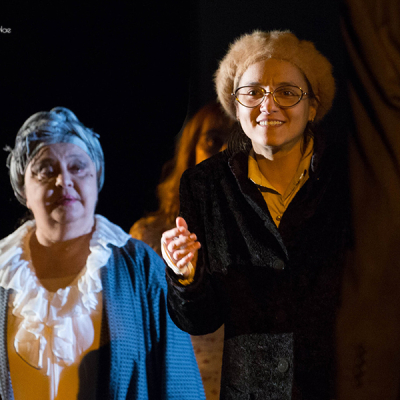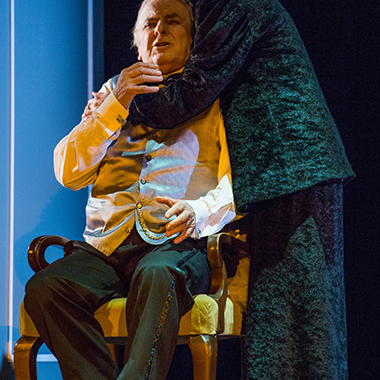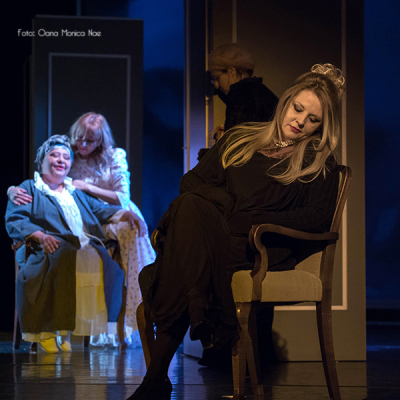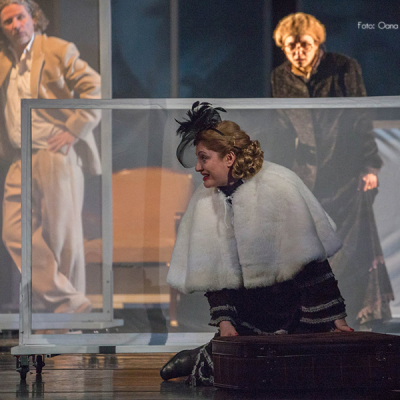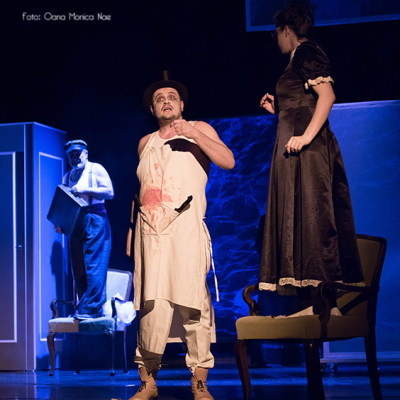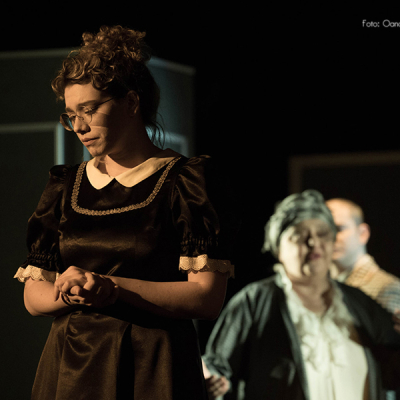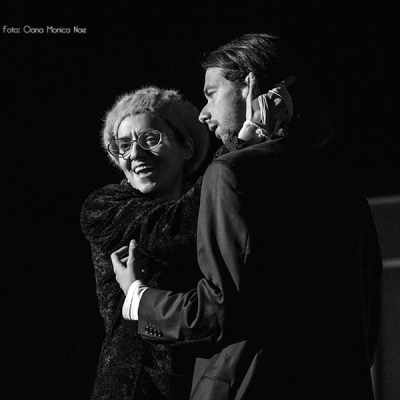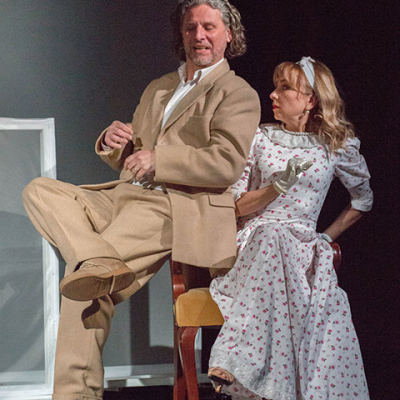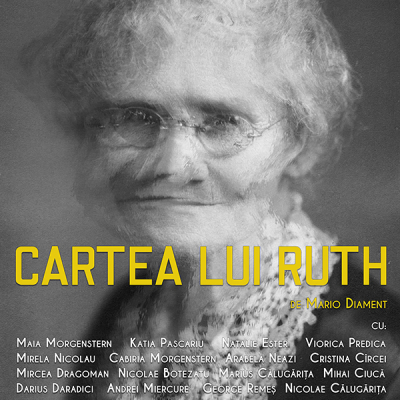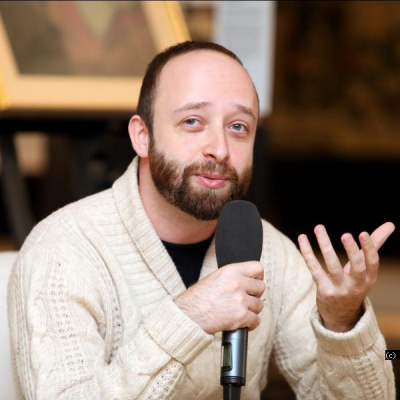The Book of Ruth
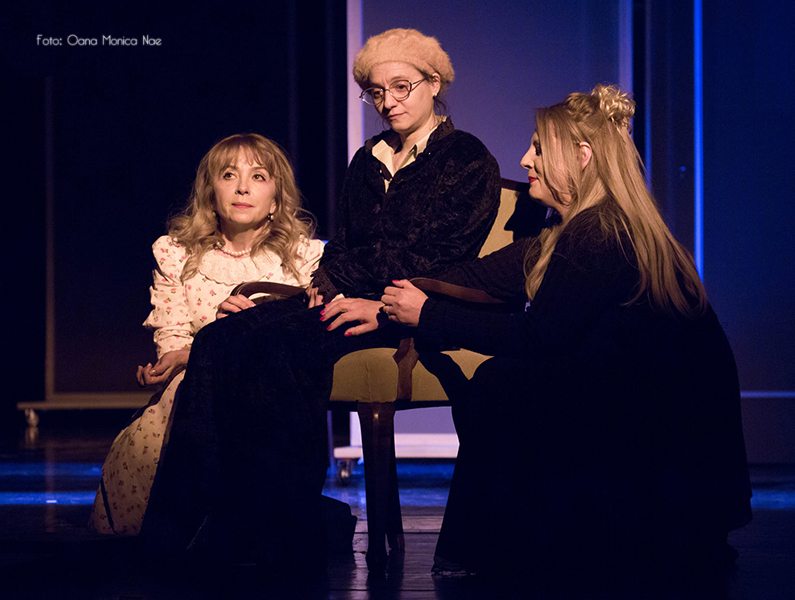
State Jewish Theatre, Bucharest, Romania
Director: Eugen Gyemant
Performed in Yiddish with Hungarian and English subtitles
2 hours, without breaks.
"The play THE BOOK OF RUTH was inspired by my mother's story. My mother was a Polish immigrant who came to Argentina in 1934 to marry my father. Like the legendary Ruth in the Bible, she ended up living among strangers, too. Except for a younger sister who also managed to immigrate to Argentina before the war, my mother lost her entire family in the Holocaust: her parents, an older sister and a brother. Mother rarely told us about her life in Warsaw or reminded us about her family. The past was too painful to talk about. As is often the case with works of fiction inspired by real events, some events are true and others are made up. More than a biographical sketch of my mother's life, what it tried to convey was the guilt that overwhelms those who escaped the war, but left their families behind. In the play, Ruth suffers from Alzheimer and therefore sees her own distant memories. That includes the other three versions of her that she doesn't recognize. The only one who gets to see all this is Mother. The piece was originally written in Spanish, but the voices that came to my mind spoke Yiddish. This is why I am so grateful to Maia Morgenstern and The Jewish State Theatre for bringing THE BOOK OF RUTH back to the stage in this strange and wonderful mother tongue – mameloschen.” (Mario Diament)
Selection of reviews / Sajtóvisszhang
,,(...)As soon as he enters the hall, the spectator notices two large transparent panels that dominate the foreground of the scene through which (as in a dream) the suggestion of a piece of furniture can be seen, rather than the furniture as such, among other panels which, like those in front or as the background of the stage, with the beginning of the performance, will light up to depict, almost blurred, places, facts, people... They sometimes become huge and eloquent photograms, sometimes moving screens mirroring the memory layers of the heroine. Evocative of a past that now returns with an overwhelming significance. In her aging body, almost totally powerless, Ruth is confronted with a world in a continuous dynamic that she approaches in the cruelest and deepest meanings. This rarefied setting, from which the color has been erased, becomes very suggestive for the permanent slide from reality, the carnality of the scenes to their metaphorical and symbolic level, for the continuously zigzagging on the open scale of temporality. It is owed, like the video design, to Dani Ionescu. The stage director also finds a good ally in stage grammar by music that creates the atmosphere, which enhances the suggestions and themes of the text, which he chooses himself, just as he also undertakes the creation of the costumes, with care for the same generous area in which concreteness facts and the immateriality of experiences, the interpretation of the characters and their inner echo, in themselves or in others, intertwine contrapuntally, complementary.
Ruth's story unfolds through the involuntary leaps of memory, fragmentarily, with advances and returns on the axis of time, which retrospectively give unforgiving meanings, by focusing on moments giving dramatic tension.(...) With a weak mind, but a heart pounding as if more alive and alert than ever, Ruth revisits her own ages - adolescence, youth, adulthood. Incarnated in the text and on stage through as many duplications: Girl, Young woman, Woman. In this carousel of memories that surrounds her, in which she is caught without escape as in a vortex, a strong figure is that of Ruth’s mother, the one who energetically directed her life's path, the one that pushed her not only alongside Boris to a materially "secure future" but also away from the threats of war that haunted Europe, foreshadowing what would be the horrible stain of the Holocaust. One of the most moving scenes is that of the dialogue about what it means to be Jewish between the little girl Ruth marked by the ingenuity of her age and her mother who chooses the path of directness and an almost disconcerting simplicity. (...)
Stage designer: Dani Ionescu
Costume designer: Eugen Gyemant
Musical illustration: Eugen Gyemant
Actors
Ruth: Katia Pascariu
Woman: Natalie Ester
Young woman: Viorica Predica
Little girl: Cabiria Morgenstern
Mother: Mirela Nicolau
Golde: Arabela Neazi
Rozalia: Cristina Cîrcei
Bărbatul / Man: Mircea Dragoman
Policeman, Ice cream vendor, Motke Pipkin: Nicolae Botezatu
Young man (Boris): Marius Călugărița
Boris: Mihai Ciucă
Max: Darius Daradici
Marek: Andrei Miercure
Ringmaster: George Remeș
Doctor: Nicolae Călugărița
Eugen Gyemant


